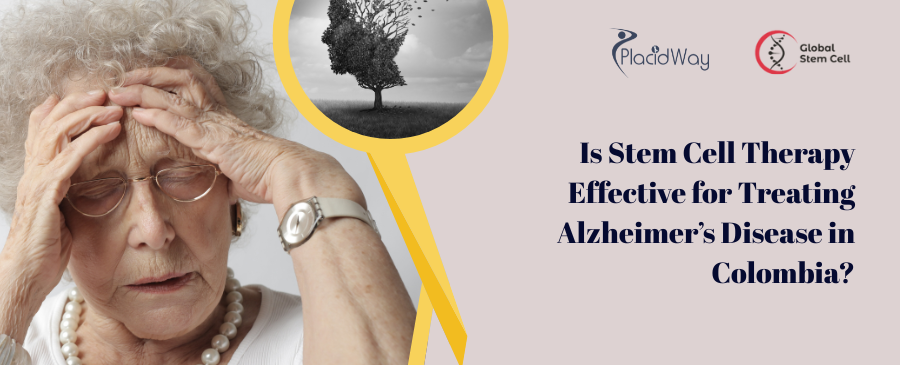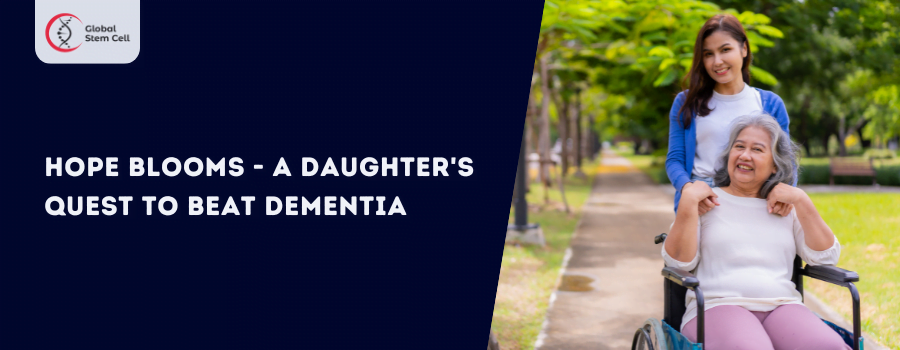
Alzheimer’s Disease & The Top 10 Signs of Alzheimer’s Disease
Alzheimer’s disease is a progressive and degenerative brain disorder that affects millions of people worldwide. It is a form of dementia that causes problems with memory, thinking, and behavior that eventually become severe enough to interfere with daily activities.
What is Alzheimer’s Disease?
Alzheimer’s disease is a type of dementia that affects the brain, causing a decline in memory, thinking, and behavior skills. It is a progressive disease, meaning it worsens over time and affects different areas of the brain, leading to a decline in cognitive abilities. In the early stages, memory loss is the most noticeable symptom, but as the disease progresses, it can lead to confusion, mood swings, and difficulty communicating.
Statistics and Prevalence of Alzheimer’s Disease
According to the Alzheimer’s Association, Alzheimer’s disease is the sixth leading cause of death in the United States and the only cause of death among the top 10 in the country that cannot be prevented, cured or even slowed. It is estimated that 5.8 million Americans are living with Alzheimer’s in 2021, and this number is projected to nearly triple by 2050. Worldwide, the number of people affected by Alzheimer’s is even higher, with an estimated 50 million people living with the disease.
These statistics highlight the need for increased research and awareness efforts to better understand and address the challenges posed by Alzheimer’s disease.
The Top 10 Signs of Alzheimer’s Disease
Alzheimer’s disease is a progressive condition that affects memory, thinking, and behavior. Understanding the early signs and symptoms of Alzheimer’s can help individuals and their loved ones get an accurate diagnosis and access appropriate treatment and support.
Here are the top 10 signs of Alzheimer’s disease:
1. Memory Loss that Disrupts Daily Life
Memory loss is one of the most common and noticeable early signs of Alzheimer’s disease. People with Alzheimer’s may experience difficulty remembering recently learned information or important dates or events. This type of memory loss can be significant enough to disrupt daily life and routines.
For example, a person with Alzheimer’s may forget important appointments or events, misplace or lose items, or have trouble remembering the names of people they know. They may also repeat the same questions or stories, as they forget that they have already asked or shared the information.
It is important to note that occasional memory lapses are a normal part of aging, but persistent and worsening memory loss may be a sign of Alzheimer’s disease. If you or a loved one is experiencing memory loss that is disrupting daily life, it is important to seek a proper evaluation and diagnosis.
Early detection and intervention can provide access to treatments and therapies that can slow the progression of the disease and improve quality of life for individuals with Alzheimer’s and their families. Your healthcare provider can provide information on the available treatments and therapies, as well as support and resources to help you manage the disease.
2. Challenges in Planning or Solving Problems
People with Alzheimer’s disease may also experience difficulties with planning and solving problems. This can make it challenging for them to complete tasks that once were easy for them, such as following a recipe to cook a meal, balancing a checkbook, or playing a game that requires strategy.
For example, a person with Alzheimer’s may have trouble following a plan, working with numbers, or making decisions. They may also become frustrated or overwhelmed when faced with complex problems or tasks.
These challenges can significantly impact a person’s daily life and independence, and can be distressing for both the person with Alzheimer’s and their loved ones. If you or a loved one is experiencing difficulties with planning or solving problems, it is important to seek a proper evaluation and diagnosis.
Early detection and intervention can provide access to treatments and therapies that can slow the progression of the disease and improve quality of life for individuals with Alzheimer’s and their families. Your healthcare provider can provide information on the available treatments and therapies, as well as support and resources to help you manage the disease.
3. Difficulty Completing Familiar Tasks
Individuals with Alzheimer’s disease may also have trouble completing familiar tasks, such as preparing a meal, playing a game they have played many times, or driving to a familiar location. This difficulty with familiar tasks can be a sign that the disease is affecting their memory and cognitive abilities.
For example, a person with Alzheimer’s may forget the steps involved in a task they have performed many times before, or they may have trouble following a familiar recipe or route. They may also have trouble completing tasks that once were easy for them, such as dressing themselves or using common household appliances.
These difficulties with familiar tasks can be distressing for both the person with Alzheimer’s and their loved ones, and can significantly impact a person’s daily life and independence. If you or a loved one is experiencing difficulty completing familiar tasks, it is important to seek a proper evaluation and diagnosis.
Early detection and intervention can provide access to treatments and therapies that can slow the progression of the disease and improve quality of life for individuals with Alzheimer’s and their families. Your healthcare provider can provide information on the available treatments and therapies, as well as support and resources to help you manage the disease.
4. Confusion with Time and Place
Confusion with time and place is a common sign of Alzheimer’s disease. People with Alzheimer’s may forget where they are or how they got there, or have trouble keeping track of dates, seasons, and the passage of time. They may also become confused about their location, such as getting lost in familiar places or forgetting where they live.
This disorientation can be distressing for both the person with Alzheimer’s and their loved ones, and can impact their ability to navigate their environment and complete daily tasks. It can also lead to feelings of confusion, frustration, and anxiety.
If you or a loved one is experiencing confusion with time and place, it is important to seek a proper evaluation and diagnosis. Early detection and intervention can provide access to treatments and therapies that can slow the progression of the disease and improve quality of life for individuals with Alzheimer’s and their families. Your healthcare provider can provide information on the available treatments and therapies, as well as support and resources to help you manage the disease.
5. Trouble Understanding Visual Images and Spatial Relationships
Trouble understanding visual images and spatial relationships is another common sign of Alzheimer’s disease. People with Alzheimer’s may have trouble judging distance or determining color or contrast, which can make it difficult for them to navigate their environment, recognize objects, and complete visual tasks.
For example, a person with Alzheimer’s may have trouble reading a map or following a familiar route, or they may have trouble recognizing familiar faces or objects. This can lead to feelings of confusion, frustration, and anxiety, and can also impact their ability to complete daily tasks and maintain their independence.
If you or a loved one is experiencing trouble understanding visual images and spatial relationships, it is important to seek a proper evaluation and diagnosis. Early detection and intervention can provide access to treatments and therapies that can slow the progression of the disease and improve quality of life for individuals with Alzheimer’s and their families. Your healthcare provider can provide information on the available treatments and therapies, as well as support and resources to help you manage the disease.
6. New Problems with Words in Speaking or Writing
Difficulty communicating, including new problems with words in speaking or writing, is another common sign of Alzheimer’s disease. People with Alzheimer’s may have trouble following or joining a conversation, or struggle to find the right word for something. They may also have trouble writing, such as forgetting how to write a word or having trouble spelling.
This difficulty with language and communication can be distressing for both the person with Alzheimer’s and their loved ones, and can significantly impact their ability to communicate and connect with others. It can also make it challenging for them to complete everyday tasks that require language skills, such as reading a map or writing a shopping list.
If you or a loved one is experiencing new problems with words in speaking or writing, it is important to seek a proper evaluation and diagnosis. Early detection and intervention can provide access to treatments and therapies that can slow the progression of the disease and improve quality of life for individuals with Alzheimer’s and their families. Your healthcare provider can provide information on the available treatments and therapies, as well as support and resources to help you manage the disease.
7. Misplacing Things and Losing the Ability to Retrace Steps
Misplacing things and losing the ability to retrace steps is another common sign of Alzheimer’s disease. People with Alzheimer’s may put things in strange or unusual places, or become frustrated when they are unable to find something they need. They may also accuse others of stealing, which can be confusing and distressing for both the person with Alzheimer’s and their loved ones.
This difficulty with memory and spatial awareness can significantly impact a person’s daily life and independence, and can lead to feelings of frustration, anxiety, and confusion.
If you or a loved one is experiencing misplacing things and losing the ability to retrace steps, it is important to seek a proper evaluation and diagnosis. Early detection and intervention can provide access to treatments and therapies that can slow the progression of the disease and improve quality of life for individuals with Alzheimer’s and their families. Your healthcare provider can provide information on the available treatments and therapies, as well as support and resources to help you manage the disease.
8. Decreased or Poor Judgment
Decreased or poor judgment is another common sign of Alzheimer’s disease. People with Alzheimer’s may make unwise financial decisions, neglect their personal safety, or engage in risky behaviors. This can have serious consequences for their well-being and safety, and can also be distressing for their loved ones.
For example, a person with Alzheimer’s may spend money recklessly, neglect personal hygiene, or wander away from home without telling anyone. These actions can be dangerous and put the person with Alzheimer’s at risk, and can also lead to feelings of confusion, frustration, and anxiety for both the person with Alzheimer’s and their loved ones.
If you or a loved one is experiencing decreased or poor judgment, it is important to seek a proper evaluation and diagnosis. Early detection and intervention can provide access to treatments and therapies that can slow the progression of the disease and improve quality of life for individuals with Alzheimer’s and their families. Your healthcare provider can provide information on the available treatments and therapies, as well as support and resources to help you manage the disease.
9. Withdrawal from Work or Social Activities
Withdrawal from work or social activities is another common sign of Alzheimer’s disease. People with Alzheimer’s may lose interest in hobbies, sports, and other activities they previously enjoyed, or they may stop going to work or participating in social events.
This withdrawal from work or social activities can be distressing for both the person with Alzheimer’s and their loved ones, and can lead to feelings of isolation and loneliness. It can also significantly impact a person’s quality of life and relationships, and can make it more challenging for them to maintain their independence and manage the disease.
If you or a loved one is experiencing withdrawal from work or social activities, it is important to seek a proper evaluation and diagnosis. Early detection and intervention can provide access to treatments and therapies that can slow the progression of the disease and improve quality of life for individuals with Alzheimer’s and their families. Your healthcare provider can provide information on the available treatments and therapies, as well as support and resources to help you manage the disease.
10. Changes in Mood and Personality
Changes in mood and personality are also common in people with Alzheimer’s disease. They may become easily upset, anxious, or paranoid, and exhibit sudden mood swings for no apparent reason. These changes can be distressing for both the person with Alzheimer’s and their loved ones, and can significantly impact their daily life and relationships.
For example, a person with Alzheimer’s may become agitated, aggressive, or paranoid, or they may experience depression, anxiety, or apathy. These mood and personality changes can make it more challenging for individuals with Alzheimer’s to manage the disease and maintain their independence, and can also be distressing for their loved ones.
If you or a loved one is experiencing changes in mood and personality, it is important to seek a proper evaluation and diagnosis. Early detection and intervention can provide access to treatments and therapies that can slow the progression of the disease and improve quality of life for individuals with Alzheimer’s and their families. Your healthcare provider can provide information on the available treatments and therapies, as well as support and resources to help you manage the disease.
It is important to remember that everyone experiences symptoms differently and that not all individuals with Alzheimer’s will experience all of these signs. If you or a loved one is experiencing symptoms of Alzheimer’s, it is important to see a doctor for an accurate diagnosis and appropriate treatment and support.
What to do if you suspect Alzheimer’s Disease
If you or a loved one is exhibiting symptoms of Alzheimer’s disease, it is important to seek a proper evaluation and diagnosis. Early detection and intervention can improve the quality of life for individuals with Alzheimer’s and their families, and can also provide access to treatment and support that can slow the progression of the disease.
Diagnosis and Evaluation
Diagnosing Alzheimer’s can be a complex process that involves a comprehensive evaluation by a healthcare provider. The evaluation may include a thorough medical history, a physical and neurological examination, and a series of cognitive and memory tests. In some cases, imaging tests, such as a CT scan or MRI, may also be performed to rule out other conditions that could be causing the symptoms.
It is important to remember that there is no one test that can diagnose Alzheimer’s and that a diagnosis is based on a combination of clinical evaluation and test results.
Available Treatments and Therapies
Currently, there is no cure for Alzheimer’s disease. However, there are a number of treatments and therapies available that can help manage the symptoms and slow the progression of the disease. These may include medications to improve memory and cognitive function, as well as non-drug therapies, such as physical and occupational therapy, speech therapy, and support groups.
In addition, there are also a number of lifestyle changes that can help improve quality of life for individuals with Alzheimer’s and their families. These may include exercise, a healthy diet, and engaging in mentally stimulating activities.
If you or a loved one is experiencing symptoms of Alzheimer’s, it is important to seek a proper evaluation and diagnosis. Your healthcare provider can provide information on the available treatments and therapies, as well as support and resources to help you manage the disease.
Final Thought
Alzheimer’s disease is a progressive and degenerative brain disorder that affects millions of people worldwide. Understanding the early signs and symptoms of Alzheimer’s is important for early detection and intervention, which can improve the quality of life for individuals with the disease and their families.
The top 10 signs of Alzheimer’s disease include memory loss, difficulties with planning and problem-solving, trouble completing familiar tasks, confusion with time and place, trouble understanding visual images and spatial relationships, new problems with words in speaking or writing, misplacing things and losing the ability to retrace steps, decreased or poor judgment, withdrawal from work or social activities, and changes in mood and personality.
If you suspect Alzheimer’s disease, it is important to seek a proper evaluation and diagnosis. Early detection and intervention can provide access to treatments and therapies that can slow the progression of the disease and improve quality of life for individuals with Alzheimer’s and their families.
The importance of early detection and intervention, as well as supporting research and awareness efforts for Alzheimer’s disease, cannot be overstated. By increasing our understanding of this debilitating disease, we can work towards finding new and effective treatments, and ultimately, a cure.






